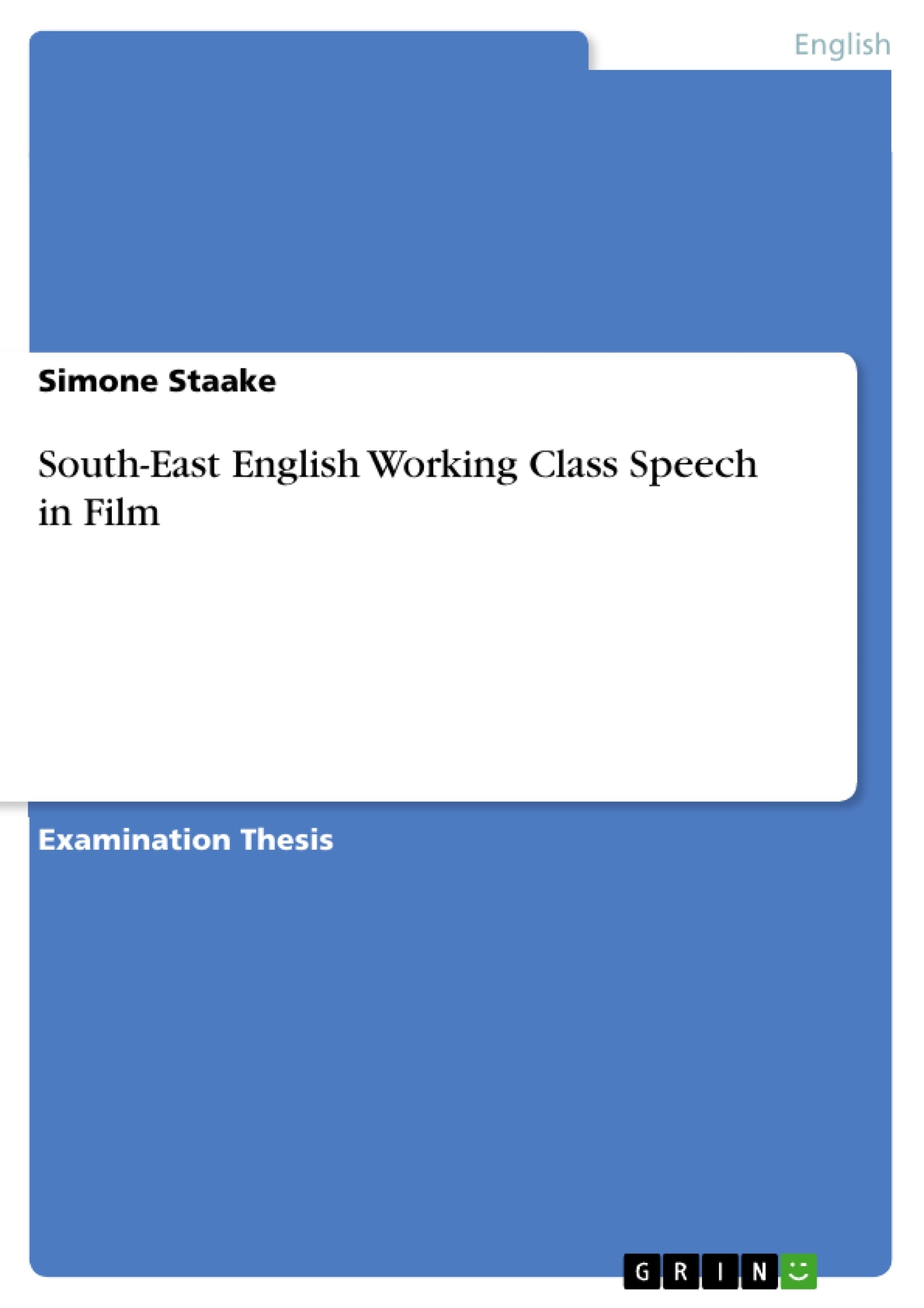This work will try to refute this claim, persisting that class is an indefinable and merely personal criterion of post-war British movie. It will be spotted that especially the working-class is, by using typical speech patterns, a major marker when a film deals with the British class system.
To enlighten in which surrounding the British post-war movie is set, a brief introduction of the cinema history will be given. This will not only look at the development in British cinema, but also relate to the country’s historical and economical changes from the post-war to modern time. As cinema is always of international concern, relations to other developments in other countries will be given a short insight when necessary.
As already stated in the quotation above, class and class markers are not easy to confine. An overview will be given about the British class system and its importance throughout the history. As this is a characteristic of British culture and the way of life, some examples of how this self-assurance marks life will be given by quoting a native sociologist. The focus will lie on the working class, as this work deals with specific dialects that derive out of the same. This includes an overview over the history of London’s working class and special criteria it has to fulfil.
When operating with working class speech, the main dialects for south-east England will be described, as well as the fundamental idea of the term dialect. This will be included in the historical and sociological development of both examples being given – Cockney English as main emphasis and Estuary English.
Inhaltsverzeichnis (Table of Contents)
- Introduction
- History and Features of Post-War British Cinema
- South-East English Working Class Speech
- Cockney English
- Social Aspects
- Linguistic Aspects
- Rhyming Slang
- Phonological Aspects
- Estuary English
- Cockney English
- Appearance of Working Class Speech in Films
- Hue and Cry
- Quadrophenia
- Lock, Stock and Two Smoking Barrels
- Chicken Run
- Cockney as Dramatic Instrument
Zielsetzung und Themenschwerpunkte (Objectives and Key Themes)
This work aims to challenge the notion that class is an indefinable personal criterion in post-war British film. It argues that working-class speech patterns serve as a significant marker of class in these films. The text will explore the historical context of post-war British cinema, the evolution of the British class system, and the role of dialect in representing working-class identity.- The use of working-class speech as a marker of class in post-war British cinema.
- The historical and social context of post-war British cinema.
- The evolution of the British class system and its representation in film.
- The linguistic features of Cockney English and Estuary English.
- The analysis of specific films to illustrate the use of working-class speech as a dramatic instrument.
Zusammenfassung der Kapitel (Chapter Summaries)
- Introduction: The introduction establishes the main argument of the work, which is that class is a definable and important element in post-war British film. It highlights the use of working-class speech as a key marker of class identity. The introduction also provides a brief overview of the historical context of post-war British cinema.
- History and Features of Post-War British Cinema: This chapter discusses the historical and social influences that shaped post-war British cinema, including the impact of the documentary movement, the dominance of Hollywood, and the government's efforts to protect the British film industry.
- South-East English Working Class Speech: This chapter examines the linguistic features of Cockney English and Estuary English, two prominent dialects of working-class speech in South-East England. It explores the social and historical development of these dialects, including their linguistic characteristics.
- Appearance of Working Class Speech in Films: This chapter analyzes four post-war British films (Hue and Cry, Quadrophenia, Lock, Stock and Two Smoking Barrels, and Chicken Run) to illustrate the use of working-class speech in different cinematic contexts. The chapter examines how language serves as a class marker and dramatic instrument in these films.
- Cockney as Dramatic Instrument: This chapter delves into the use of Cockney English as a dramatic instrument in animated children's cinema, using Chicken Run as an example. The chapter explores how Cockney dialect contributes to the narrative and character development of the film.
Schlüsselwörter (Keywords)
The main keywords and focus topics of this work include post-war British cinema, working-class speech, Cockney English, Estuary English, class markers, dramatic instrument, language, and film analysis. The work emphasizes the role of dialect in representing working-class identity and the use of language as a tool for conveying social and cultural meaning in film.- Citar trabajo
- Simone Staake (Autor), 2008, South-East English Working Class Speech in Film, Múnich, GRIN Verlag, https://www.grin.com/document/117478



